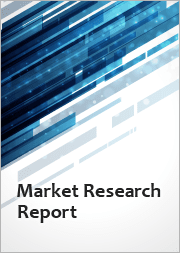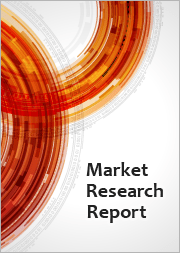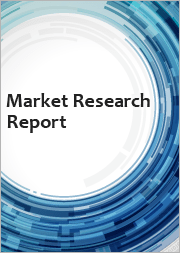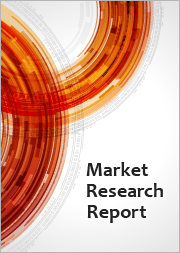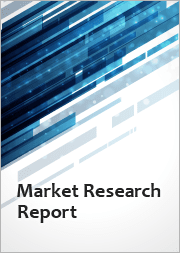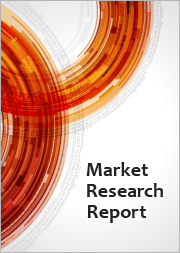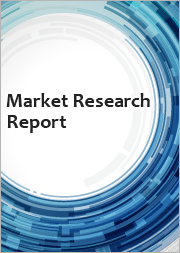
|
시장보고서
상품코드
1803056
연령 역전 임상시험 시장 예측(-2032년) - 치료 유형별, 시험 단계별, 바이오마커 유형별, 연구 디자인별, 대상 집단별, 스폰서 유형별, 지역별 분석Age-Reversal Clinical Trials Market Forecasts to 2032 - Global Analysis By Therapy Type, Trial Phase, Biomarker Type, Study Design, Target Population, Sponsor Type and By Geography |
||||||
Stratistics MRC에 따르면 세계의 연령 역전 임상시험 시장은 2025년에 15억 8,000만 달러로 추정되고, 예측 기간 동안 CAGR 22.0%로 성장할 전망이며, 2032년까지는 63억 8,000만 달러에 이를 것으로 예측되고 있습니다.
연령 역전 임상시험은 생물학적 노화를 감속, 정지, 역전시키는 것을 목적으로 하는 치료, 투약, 개입책의 시험에 초점을 맞춘 과학적 연구입니다. 이러한 임상시험은 재생 의학, 노화 방지제, 유전자 치료, 라이프 스타일 개선과 같은 접근법의 안전성, 효능 및 지속적인 영향을 고려합니다. 노화의 바이오마커, 신체적 성과, 종합적인 웰빙을 분석함으로써 건강 수명 연장, 노화 관련 질환의 예방, 종합적인 삶의 질 향상에 있어 혁신으로 이어질 수 있는 귀중한 데이터를 얻을 수 있습니다.
미국 국립위생연구소에 따르면 65세 이상의 미국 국민 중 약 720만 명이 알츠하이머병 등의 질병을 안고 있다고 합니다.
노인 인구 증가 및 건강 수명 연신에 대한 요구
세계 고령화 인구 증가는 연령 역전 임상시험에 대한 관심을 강화하고 있습니다. 장수가 중심적인 초점이 됨에 따라 수명뿐만 아니라 건강 수명을 연장시키는 개입을 요구하는 사람이 증가하고 있습니다. 이러한 인구동태의 변화는 세포의 노화, 노화 현상, 노화에 따른 쇠퇴를 표적으로 하는 치료법에 대한 수요를 촉진하고 있습니다. 임상시험은 재생 의학, 유전자 치료 및 후성 재프로그래밍을 탐구하기 위해 확대되었습니다. 고령자는 활력의 개선이나 질병 부담의 경감을 기대할 수 있는 임상시험에 대한 참가에 적극적입니다. 이러한 인구통계학적 압력과 의욕적인 고령화의 수렴이 시장 성장을 가속화하고 있습니다.
효과적인 바이오마커 부족
신뢰할 수 있는 마커가 없으면 치료 효과와 장기적인 혜택 측정이 어려워지고 테스트 설계, 규제 당국의 승인, 보다 광범위한 임상 사용을 복잡하게 합니다. 표준화되지 않았기 때문에 다른 연구 결과를 비교하는 것이 어렵고 진보를 방해합니다. 게다가 보편적으로 인지된 바이오마커를 입수할 수 없기 때문에 연구비용이 부담스럽고, 치료법의 진보가 늦어지며, 투자자와 의료 전문가 사이에서 의심이 부추겨져, 결국 시장의 확대가 제한되어, 연령을 역전시키는 혁신을 실용적인 의료 솔루션으로 전환하는 것이 늦어집니다.
장수 솔루션에 대한 소비자 수요
언론 보도, 유명인의 지지, 바이오해킹 문화의 등장으로 장수에 대한 일반 소비자의 관심이 급상승하고 있습니다. 소비자는 보충제와 줄기세포 요법에서 개별화된 임상시험에 이르기까지 나이를 역전시키는 솔루션을 적극적으로 요구하고 있습니다. 이 수요는 생명 공학 기업 및 연구 기관에 개발 파이프라인의 가속화를 촉구하고 있습니다. 임상시험 참가자를 모집하고 실험적 치료법에 대한 조기 액세스를 제공하기 위해 소비자 직접 판매 플랫폼이 등장합니다. 인지도가 높아짐에 따라 개인은 회춘을 기대할 수 있는 임상시험에 시간과 자원을 투자할 의욕을 높이고 있습니다. 시장은 이러한 적극적이고 건강에 최적화된 소비자의 굴곡으로부터 이익을 얻는 태세를 갖추고 있습니다.
인접 시장과의 경쟁
연령 역전 임상시험은 웰니스틱, 영양보조식품, 예방의학 등 인접 분야와의 경쟁이 격화되고 있습니다. 이러한 대체품은 규제 장애물이 낮고 시장 출시 시간이 단축되며 유사한 효과를 약속하는 경우가 많습니다. 소비자는 웨어러블 건강 모니터, 인공지능 주도 진단 또는 상업용 장수 보충제와 같은 비임상적 개입을 선택할 수 있습니다. 이러한 주목과 자금의 유용은 임상시험의 파이프라인을 희박하게 만들고 혁신을 늦출 수 있습니다. 게다가 규제 대상의 임상시험과 일반 소비자용 제품의 경계를 모호하게 하는 하이브리드 제품으로, 분야를 넘어선 기업이 이 분야에 진출하고 있습니다. 이러한 경쟁은 시장을 세분화하고 임상 접근법의 이점을 위협합니다.
COVID-19의 영향 :
팬데믹은 임상시험의 상황을 일변시켜 연령 역전 연구의 과제와 기회를 모두 가져왔습니다. 봉쇄 및 헬스케어에 있어서 혼란은 임상시험의 모집과 프로토콜의 실행을 지연시켰습니다. 그러나 이 위기는 또한 면역회복력 및 생물학적 노화에 대한 관심을 가속화하고 연령 역전의 목표와 일치시켰습니다. 원격 모니터링 도구 및 분산형 임상시험 모델이 보급되어 보다 광범위한 참여가 가능해졌습니다. 원격 의료가 통합됨에 따라 조사는 지속성을 유지하고 종단 데이터를 수집할 수 있게 되었습니다. 전반적으로 COVID-19는 노화와 관련된 건강 개입의 긴급성을 강화하면서 테스트 디자인의 혁신을 촉진했습니다.
예측 기간 중 노년의학 분야가 최대가 될 전망
노화 및 염증의 원인이 되는 노화 세포를 제거할 수 있기 때문에 예측 기간 동안 시장 세분화가 최대 시장 점유율을 차지할 것으로 예측됩니다. 정밀 약물전달, AI 주도의 분자 탐색, 통합 오믹스 등의 기술 혁신이 이 분야를 전진시키고 있습니다. 동향은 BCL-2 억제제, 식물 유래 화합물, 키나제 표적 약물의 상승을 포함합니다. 테스트 디자인 및 바이오마커 개발의 최근 진보는 임상 결과를 개선하고 있는 반면, 제로사이언스에 대한 관심 증가는 규제 당국의 관심과 바이오테크놀러지 기업의 투자 모두를 끌고 있습니다.
예측 기간 동안 생명 공학 기업 부문의 CAGR이 가장 높을 것으로 예측됩니다.
예측 기간 동안 생명 공학 기업 부문은 세포 재프로그래밍, 인공지능을 이용한 창약, 멀티오믹스 통합에 있어서 최첨단 혁신을 통해 가장 높은 성장률을 보일 것으로 예측됩니다. 새로운 추세로는 야마나카 요인에 기초한 회춘, 노인성 유전자 편집, NAD 경로 변조 등이 있습니다. 적응 시험 플랫폼, 정밀 바이오마커, 장기 재생 기술 등의 주요 발전으로 임상 검증이 가속화되고 있습니다. 강력한 벤처 캐피탈과 전략적 파트너십을 뒷받침하는 이들 기업은 치료 가능한 질병으로 노화를 재구성하고 장수 과학 및 예방 헬스케어의 패러다임 전환에 박차를 가하고 있습니다.
최대 점유율을 차지하는 지역 :
예측 기간 동안 아시아태평양은 생명 공학 자금 증가, 규제 합리화 및 견고한 인프라로 인해 가장 큰 시장 점유율을 차지할 것으로 예측됩니다. AI를 활용한 임상시험 최적화, 후성적 개입, 디지털 헬스 추적 등 최첨단 툴이 정세를 재구축하고 있습니다. 원격 연구 모델 및 맞춤형 장수 치료와 같은 동향은 참가자의 다양성과 참여를 향상시킵니다. 주요 이정표로는 지역 임상시험 표준화, 전략적 CRO 제휴, 고령화에 중점을 둔 공중 보건 이니셔티브 등이 있습니다. 이러한 요소가 일체가 되어 혁신을 추진해, 이 지역을 노화 역전 연구의 리더로서 자리매김하고 있습니다.
CAGR이 가장 높은 지역 :
예측 기간 동안 북미는 가장 높은 CAGR을 나타낼 것으로 예측되며, 이는 최첨단 헬스케어 시스템, 유리한 규제 프레임워크, 충실한 연구 자금에 힘입어지고 있습니다. AI를 활용한 시험 관리, 정밀 유전자 편집, 바이오마커를 기반으로 하는 바이오인포매틱스 등의 기술은 시험 방법을 변화시키고 있습니다. 분산형 모델, 유연한 테스트 디자인, 실세계 데이터 통합의 등장은 임상 전망을 재구성하고 있습니다. 주요 진전으로는 FDA 보증 고령화 연구, CRO 네트워크의 확대, 신경 변성 및 대사성 질환에 대한 주력의 강화 등이 있으며, 이 지역이 연령 역전 혁신의 프런트 러너로서의 역할을 확고하게 하고 있습니다.
무료 주문을 받아서 만드는 서비스 :
이 보고서를 구독하는 고객은 다음 무료 맞춤설정 옵션 중 하나를 사용할 수 있습니다.
- 기업 프로파일
- 추가 시장 기업의 종합적 프로파일링(3개사까지)
- 주요 기업의 SWOT 분석(3개사까지)
- 지역 세분화
- 고객의 관심에 응한 주요국 시장 추계, 예측 및 CAGR(주 : 타당성 확인에 따름)
- 경쟁 벤치마킹
- 제품 포트폴리오, 지리적 존재, 전략적 제휴에 기반한 주요 기업 벤치마킹
목차
제1장 주요 요약
제2장 서문
- 개요
- 이해관계자
- 조사 범위
- 조사 방법
- 데이터 마이닝
- 데이터 분석
- 데이터 검증
- 조사 접근
- 조사 자료
- 1차 조사 자료
- 2차 조사 자료
- 전제조건
제3장 시장 동향 분석
- 성장 촉진요인
- 성장 억제요인
- 기회
- 위협
- 신흥 시장
- COVID-19의 영향
제4장 Porter's Five Forces 분석
- 공급기업의 협상력
- 구매자의 협상력
- 대체품의 위협
- 신규 참가업체의 위협
- 경쟁 기업간 경쟁 관계
제5장 세계의 연령 역전 임상시험 시장 : 치료 유형별
- 세노리틱스
- NAD 모듈레이터
- 펩티드 기반의 개입
- 텔로머라제 활성화제
- 후성적 재프로그래밍제
- 줄기세포요법
- 세노모르픽스
- 유전자 치료
- 기타 치료 유형
제6장 세계의 연령 역전 임상시험 시장 : 시험 단계별
- 페이즈 I
- 페이즈 II
- 페이즈 III
- 페이즈 IV
제7장 세계의 연령 역전 임상시험 시장 : 바이오마커 유형별
- 유전체 바이오마커
- 대사 연령 마커
- 프로테옴 바이오마커
- 염증 마커
- 후성적 마커
제8장 세계의 연령 역전 임상시험 시장 : 연구 디자인별
- 랜덤화 비교 시험(RCT)
- 적응형 시험
- 오픈 라벨 시험
- 분산형 및 가상시험
제9장 세계의 연령 역전 임상시험 시장 : 대상 집단별
- 건강한 노인
- 연령 관련 질환 환자
- 예방의료를 요구하는 사람 및 바이오 해커
- 노년 코호트
제10장 세계의 연령 역전 임상시험 시장 : 스폰서 유형별
- 제약회사
- 바이오테크놀러지 기업
- 정부기관 및 비영리단체
- 학술기관 및 연구기관
제11장 세계의 연령 역전 임상시험 시장 : 지역별
- 북미
- 미국
- 캐나다
- 멕시코
- 유럽
- 독일
- 영국
- 이탈리아
- 프랑스
- 스페인
- 기타 유럽
- 아시아태평양
- 일본
- 중국
- 인도
- 호주
- 뉴질랜드
- 한국
- 기타 아시아태평양
- 남미
- 아르헨티나
- 브라질
- 칠레
- 기타 남미
- 중동 및 아프리카
- 사우디아라비아
- 아랍에미리트(UAE)
- 카타르
- 남아프리카
- 기타 중동 및 아프리카
제12장 주요 발전
- 계약, 파트너십, 협업 및 합작투자(JV)
- 인수 및 합병
- 신제품 발매
- 사업 확대
- 기타 주요 전략
제13장 기업 프로파일링
- Altos Labs
- Oisin Biotechnologies
- Insilico Medicine
- FoxBio
- Calico Life Sciences
- AgeX Therapeutics
- Juvenescence
- Amazentis
- Life Biosciences
- Deep Longevity
- Rejuvenate Bio
- NewLimit
- Unity Biotechnology
- Elysium Health
- BioAge Labs
- Cambrian BioPharma
- Retro Biosciences
- Turn.bio
According to Stratistics MRC, the Global Age-Reversal Clinical Trials Market is accounted for $1.58 billion in 2025 and is expected to reach $6.38 billion by 2032 growing at a CAGR of 22.0% during the forecast period. Age-Reversal Clinical Trials are scientific studies focused on testing treatments, medications, or interventions intended to decelerate, stop, or reverse biological aging. These trials examine safety, effectiveness, and lasting impacts of approaches like regenerative medicine, senolytics, gene therapies, and lifestyle modifications. By analyzing aging biomarkers, physical performance, and overall wellness, they generate valuable data that may lead to innovations in prolonging healthspan, preventing age-related conditions, and enhancing overall quality of life
According to the National Institute of Health around 7.2 million American citizens aged above 65 and above live with diseases, such as Alzheimer.
Market Dynamics:
Driver:
Growing geriatric population and desire for healthspan extension
The global rise in the aging population is intensifying interest in age-reversal clinical trials. As longevity becomes a central focus, individuals are increasingly seeking interventions that extend not just lifespan but healthspan. This demographic shift is driving demand for therapies that target cellular aging, senescence, and age-related decline. Clinical trials are expanding to explore regenerative medicine, gene therapy, and epigenetic reprogramming. Older adults are more willing to participate in trials that promise improved vitality and reduced disease burden. This convergence of demographic pressure and aspirational aging is accelerating market growth.
Restraint:
Lack of validated biomarkers
Without dependable markers, measuring treatment effectiveness and long-term benefits becomes challenging, complicating trial design, regulatory clearance, and broader clinical use. This lack of standardization makes it difficult to compare findings across different studies, hindering progress. Furthermore, the unavailability of universally recognized biomarkers adds to research expenses, slows therapeutic advancements, and fuels doubts among investors and healthcare professionals, ultimately restricting market expansion and delaying the translation of age-reversal innovations into practical medical solutions.
Opportunity:
Consumer demand for longevity solutions
Public interest in longevity has surged, fueled by media coverage, celebrity endorsements, and the rise of biohacking culture. Consumers are actively seeking age-reversal solutions, from supplements and stem cell therapies to personalized clinical trials. This demand is prompting biotech firms and research institutions to accelerate development pipelines. Direct-to-consumer platforms are emerging to recruit trial participants and offer early access to experimental therapies. As awareness grows, individuals are more willing to invest time and resources into trials that promise rejuvenation. The market is poised to benefit from this groundswell of proactive, health-optimized consumers.
Threat:
Competition from adjacent markets
Age-reversal trials face increasing competition from adjacent sectors such as wellness tech, nutraceuticals, and preventive medicine. These alternatives often promise similar benefits with fewer regulatory hurdles and faster time-to-market. Consumers may opt for non-clinical interventions like wearable health monitors, AI-driven diagnostics, or over-the-counter longevity supplements. This diversion of attention and funding can dilute the clinical trial pipeline and slow innovation. Additionally, cross-sector players are entering the space with hybrid offerings that blur the lines between regulated trials and consumer products. Such competition threatens to fragment the market and challenge the dominance of clinical approaches.
Covid-19 Impact:
The pandemic reshaped the clinical trial landscape, introducing both challenges and opportunities for age-reversal research. Lockdowns and healthcare disruptions delayed trial recruitment and protocol execution. However, the crisis also accelerated interest in immune resilience and biological aging, aligning with age-reversal goals. Remote monitoring tools and decentralized trial models gained traction, enabling broader participation. Telemedicine integration allowed researchers to maintain continuity and collect longitudinal data. Overall, Covid-19 catalyzed innovation in trial design while reinforcing the urgency of age-related health interventions.
The senolytics segment is expected to be the largest during the forecast period
The senolytics segment is expected to account for the largest market share during the forecast period, due to their potential to clear senescent cells that contribute to aging and inflammation. Technological innovations like precision drug delivery, AI-driven molecule discovery, and integrated omics are advancing the field. Trends include the rise of BCL-2 inhibitors, plant-derived compounds, and kinase-targeting agents. Recent progress in trial design and biomarker development is improving clinical outcomes, while increased interest in geroscience is attracting both regulatory attention and biotech investment.
The biotechnology firms segment is expected to have the highest CAGR during the forecast period
Over the forecast period, the biotechnology firms segment is predicted to witness the highest growth rate, through cutting-edge innovations in cellular reprogramming, AI-powered drug discovery, and multi-omics integration. Emerging trends include Yamanaka factor-based rejuvenation, senolytic gene editing, and NAD+ pathway modulation. Key developments such as adaptive trial platforms, precision biomarkers, and organ regeneration technologies are accelerating clinical validation. Backed by robust venture capital and strategic partnerships, these firms are reshaping aging as a treatable condition, fueling a paradigm shift in longevity science and preventive healthcare.
Region with largest share:
During the forecast period, the Asia Pacific region is expected to hold the largest market share, due to increased biotech funding, streamlined regulations, and robust infrastructure. Cutting-edge tools like AI-based trial optimization, epigenetic interventions, and digital health tracking are reshaping the landscape. Trends such as remote trial models and tailored longevity treatments are improving participant diversity and engagement. Key milestones include regional trial standardization, strategic CRO alliances, and public health initiatives focused on aging. Together, these elements are driving innovation and positioning the region as a leader in age-reversal research.
Region with highest CAGR:
Over the forecast period, the North America region is anticipated to exhibit the highest CAGR, fuelled by cutting-edge healthcare systems, favourable regulatory frameworks, and substantial research funding. Technologies like AI-enhanced trial management, precision gene editing, and biomarker-based bioinformatics are transforming trial methodologies. The rise of decentralized models, flexible trial designs, and integration of real-world data are reshaping the clinical landscape. Key progress includes FDA-endorsed aging research, expanded CRO networks, and intensified focus on neurodegenerative and metabolic conditions-solidifying the region's role as a frontrunner in age-reversal innovation.
Key players in the market
Some of the key players in Age-Reversal Clinical Trials Market include Altos Labs, Oisin Biotechnologies, Insilico Medicine, FoxBio, Calico Life Sciences, AgeX Therapeutics, Juvenescence, Amazentis, Life Biosciences, Deep Longevity, Rejuvenate Bio, NewLimit, Unity Biotechnology, Elysium Health, BioAge Labs, Cambrian BioPharma, Retro Biosciences, and Turn.bio.
Key Developments:
In June 2025, Insilico Medicine and United Arab Emirates University ("UAEU") have signed a Memorandum of Understanding (MoU) to advance the development of local scientific talents and drive research collaborations within the nation's rapidly growing biotechnology sector.
In May 2024, Calico Life Sciences LLC (Calico) and the Broad Institute of MIT and Harvard, announced that the two organizations have further extended their partnership with an added focus on age-related neurodegeneration. Initially announced in March 2015, this renewed agreement extends the collaboration until September 2029 and will continue to support ongoing programs focused on the biology and genetics of aging as well as early-stage drug discovery. Terms of the agreement were not disclosed.
In January 2022, Altos Labs(TM) launched as a new biotechnology company dedicated to unraveling the deep biology of cellular rejuvenation programming. Altos' mission is to restore cell health and resilience to reverse disease, injury, and the disabilities that can occur throughout life. The company launches with a community of leading scientists, clinicians, and leaders from both academia and industry working together towards this common mission.
Therapy Types Covered:
- Senolytics
- NAD+ Modulators
- Peptide-Based Interventions
- Telomerase Activators
- Epigenetic Reprogramming Agents
- Stem Cell Therapies
- Senomorphics
- Gene therapies
- Other Therapy Types
Trial Phases Covered:
- Phase I
- Phase II
- Phase III
- Phase IV
Biomarker Types Covered:
- Genomic Biomarkers
- Metabolic Age Indicators
- Proteomic Biomarkers
- Inflammatory Markers
- Epigenetic Markers
Study Designs Covered:
- Randomized Controlled Trials (RCTs)
- Adaptive Trials
- Open-Label Studies
- Decentralized/Virtual Trials
Target Populations Covered:
- Healthy Aging Adults
- Patients with Age-Related Diseases
- Preventive Health Seekers / Biohackers
- Geriatric Cohorts
Sponsor Types Covered:
- Pharmaceutical Companies
- Biotechnology Firms
- Government & Non-Profit Organizations
- Academic & Research Institutions
Regions Covered:
- North America
- US
- Canada
- Mexico
- Europe
- Germany
- UK
- Italy
- France
- Spain
- Rest of Europe
- Asia Pacific
- Japan
- China
- India
- Australia
- New Zealand
- South Korea
- Rest of Asia Pacific
- South America
- Argentina
- Brazil
- Chile
- Rest of South America
- Middle East & Africa
- Saudi Arabia
- UAE
- Qatar
- South Africa
- Rest of Middle East & Africa
What our report offers:
- Market share assessments for the regional and country-level segments
- Strategic recommendations for the new entrants
- Covers Market data for the years 2024, 2025, 2026, 2028, and 2032
- Market Trends (Drivers, Constraints, Opportunities, Threats, Challenges, Investment Opportunities, and recommendations)
- Strategic recommendations in key business segments based on the market estimations
- Competitive landscaping mapping the key common trends
- Company profiling with detailed strategies, financials, and recent developments
- Supply chain trends mapping the latest technological advancements
Free Customization Offerings:
All the customers of this report will be entitled to receive one of the following free customization options:
- Company Profiling
- Comprehensive profiling of additional market players (up to 3)
- SWOT Analysis of key players (up to 3)
- Regional Segmentation
- Market estimations, Forecasts and CAGR of any prominent country as per the client's interest (Note: Depends on feasibility check)
- Competitive Benchmarking
- Benchmarking of key players based on product portfolio, geographical presence, and strategic alliances
Table of Contents
1 Executive Summary
2 Preface
- 2.1 Abstract
- 2.2 Stake Holders
- 2.3 Research Scope
- 2.4 Research Methodology
- 2.4.1 Data Mining
- 2.4.2 Data Analysis
- 2.4.3 Data Validation
- 2.4.4 Research Approach
- 2.5 Research Sources
- 2.5.1 Primary Research Sources
- 2.5.2 Secondary Research Sources
- 2.5.3 Assumptions
3 Market Trend Analysis
- 3.1 Introduction
- 3.2 Drivers
- 3.3 Restraints
- 3.4 Opportunities
- 3.5 Threats
- 3.6 Emerging Markets
- 3.7 Impact of Covid-19
4 Porters Five Force Analysis
- 4.1 Bargaining power of suppliers
- 4.2 Bargaining power of buyers
- 4.3 Threat of substitutes
- 4.4 Threat of new entrants
- 4.5 Competitive rivalry
5 Global Age-Reversal Clinical Trials Market, By Therapy Type
- 5.1 Introduction
- 5.2 Senolytics
- 5.3 NAD+ Modulators
- 5.4 Peptide-Based Interventions
- 5.5 Telomerase Activators
- 5.6 Epigenetic Reprogramming Agents
- 5.7 Stem Cell Therapies
- 5.8 Senomorphics
- 5.9 Gene therapies
- 5.10 Other Therapy Types
6 Global Age-Reversal Clinical Trials Market, By Trial Phase
- 6.1 Introduction
- 6.2 Phase I
- 6.3 Phase II
- 6.4 Phase III
- 6.5 Phase IV
7 Global Age-Reversal Clinical Trials Market, By Biomarker Type
- 7.1 Introduction
- 7.2 Genomic Biomarkers
- 7.3 Metabolic Age Indicators
- 7.4 Proteomic Biomarkers
- 7.5 Inflammatory Markers
- 7.6 Epigenetic Markers
8 Global Age-Reversal Clinical Trials Market, By Study Design
- 8.1 Introduction
- 8.2 Randomized Controlled Trials (RCTs)
- 8.3 Adaptive Trials
- 8.4 Open-Label Studies
- 8.5 Decentralized/Virtual Trials
9 Global Age-Reversal Clinical Trials Market, By Target Population
- 9.1 Introduction
- 9.2 Healthy Aging Adults
- 9.3 Patients with Age-Related Diseases
- 9.4 Preventive Health Seekers / Biohackers
- 9.5 Geriatric Cohorts
10 Global Age-Reversal Clinical Trials Market, By Sponsor Type
- 10.1 Introduction
- 10.2 Pharmaceutical Companies
- 10.3 Biotechnology Firms
- 10.4 Government & Non-Profit Organizations
- 10.5 Academic & Research Institutions
11 Global Age-Reversal Clinical Trials Market, By Geography
- 11.1 Introduction
- 11.2 North America
- 11.2.1 US
- 11.2.2 Canada
- 11.2.3 Mexico
- 11.3 Europe
- 11.3.1 Germany
- 11.3.2 UK
- 11.3.3 Italy
- 11.3.4 France
- 11.3.5 Spain
- 11.3.6 Rest of Europe
- 11.4 Asia Pacific
- 11.4.1 Japan
- 11.4.2 China
- 11.4.3 India
- 11.4.4 Australia
- 11.4.5 New Zealand
- 11.4.6 South Korea
- 11.4.7 Rest of Asia Pacific
- 11.5 South America
- 11.5.1 Argentina
- 11.5.2 Brazil
- 11.5.3 Chile
- 11.5.4 Rest of South America
- 11.6 Middle East & Africa
- 11.6.1 Saudi Arabia
- 11.6.2 UAE
- 11.6.3 Qatar
- 11.6.4 South Africa
- 11.6.5 Rest of Middle East & Africa
12 Key Developments
- 12.1 Agreements, Partnerships, Collaborations and Joint Ventures
- 12.2 Acquisitions & Mergers
- 12.3 New Product Launch
- 12.4 Expansions
- 12.5 Other Key Strategies
13 Company Profiling
- 13.1 Altos Labs
- 13.2 Oisin Biotechnologies
- 13.3 Insilico Medicine
- 13.4 FoxBio
- 13.5 Calico Life Sciences
- 13.6 AgeX Therapeutics
- 13.7 Juvenescence
- 13.8 Amazentis
- 13.9 Life Biosciences
- 13.10 Deep Longevity
- 13.11 Rejuvenate Bio
- 13.12 NewLimit
- 13.13 Unity Biotechnology
- 13.14 Elysium Health
- 13.15 BioAge Labs
- 13.16 Cambrian BioPharma
- 13.17 Retro Biosciences
- 13.18 Turn.bio






